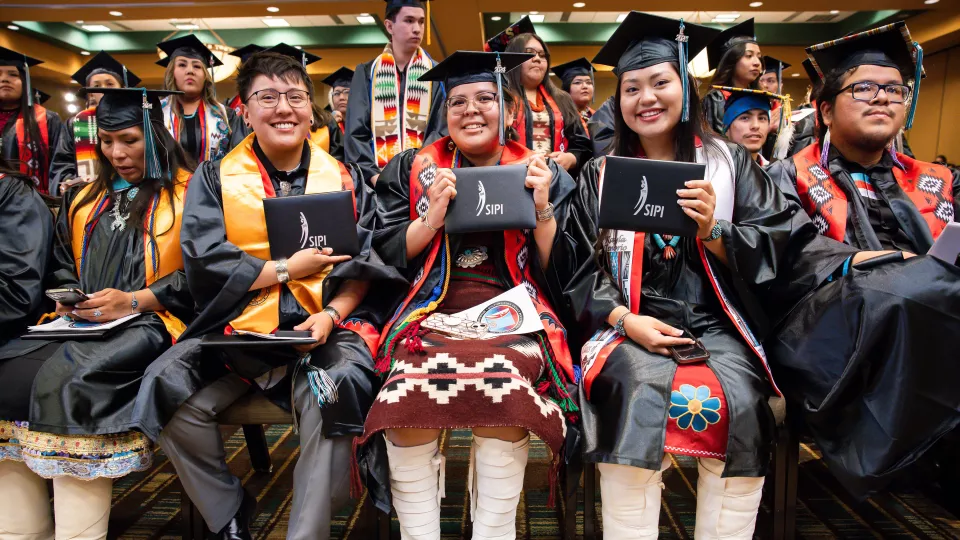
The Bureau of Indian Education is committed to offering affordable and culturally relevant educational opportunities to American Indian and Alaska Native students pursuing higher education. Tribal Colleges and Universities, as defined by the Higher Education Act, support thousands of Indigenous students.
“Having a Tribal college or university has made a difference in their communities because they are growing their own workforce,” Katherine Campbell, Ph.D., Program Analyst at the BIE Office of Postsecondary Education. “TCUs have a significant economic impact.”
The BIE operates Haskell Indian Nations University in Lawrence, Kansas, and Southwestern Indian Polytechnic Institute in Albuquerque, New Mexico. It also provides operational grants to 29 TCUs, offering programs ranging from associate to doctorate degrees. The BIE also supports two Tribal technical colleges and offers scholarship programs to keep these institutions affordable for qualified American Indian and Alaska Native students.
“Tribal college students will give back to their people,” Campbell said.
Affordability
Tribal Colleges and Universities are among the most affordable higher education options in the United States. Compared to national averages for public, four-year universities, BIE institutions and TCUs offer significant savings, with some costing less than $1,000 a semester. Many students graduate with little to no debt.
“It is helpful after graduation because they're not paying student loans, and if they go to another college, they know what they need to do academically and financially based on their experience at the Tribal college,” Campbell said.
BIE schools and TCUs can facilitate a smooth transition from small, rural schools to four-year universities. Students benefit from individualized attention and can enroll in courses focused on their Tribal culture and language — many of which are unique to these institutions — all while keeping their education costs low.
Resources and Opportunities
Many federal agencies provide information on other scholarships, savings programs, federal loans and additional resources to keep college affordable.
- BIE Scholarships: Offers a range of scholarships for higher education students across various fields and levels. Unlike loans, scholarships do not require repayment, although some involve service commitments or maintaining specific academic performance.
- Federal Student Aid: Provides information on how to save for college, including savings plans and financial aid options.
- U.S. Department of Education: Offers resources and guidance on financial planning for college, including information on scholarships and grants.
- Internal Revenue Service Education Savings Plans: Provides information on tax benefits for education savings, including the tax advantages of 529 plans and Coverdell Education Savings Accounts.
- Consumer Financial Protection Bureau: Offers tools and resources to help families understand saving for college and managing student loans.
- Pre-Law Summer Institute: A two-month orientation program that prepares American Indian and Alaska Native students for their first year of law school through instruction and skill-building in research methods, legal analysis, and legal writing.
Contact
Office of Communications
Bureau of Indian Education Central Office
U.S. Department of the Interior
1849 C Street NW, MIB-3610
Washington, DC 20240
Telephone: 202-941-0789
Email: biecommunications@bie.edu





